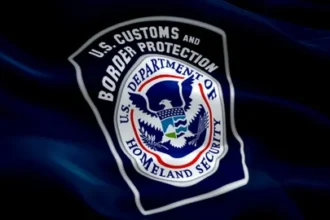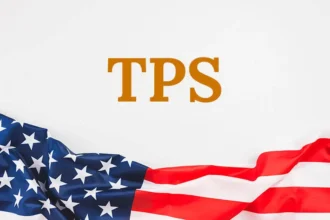For many applicants, attending a US Embassy visa appointment marks one of the most crucial stages in their journey toward studying, working, or visiting the United States. The interview at a US Embassy or Consulate allows consular officers to assess whether the applicant qualifies for a visa based on US immigration law. While documentation and online forms are important, the visa appointment itself often determines the outcome. Applicants who are well-prepared, confident, and informed about the process significantly improve their chances of success.
This guide explores practical tips for attending a US Embassy visa appointment, from preparation to post-interview considerations, helping applicants navigate the process effectively.
Understanding the Purpose of the Visa Appointment
The US visa appointment is not merely a formality it is an opportunity for consular officers to verify the authenticity of an application. The officer will evaluate whether the applicant meets the requirements for the visa type requested and whether their intent aligns with US immigration law. For example, those applying for a B-2 Tourist Visa must demonstrate temporary intent, while a student visa applicant must show proof of admission to a US institution.
According to the US Department of State, interviews are generally required for applicants between the ages of 14 and 79. The appointment allows the officer to cross-check documentation, assess credibility, and ensure the applicant does not pose an immigration or security risk.
Scheduling the Appointment
The first step in the process is scheduling the appointment online through the Consular Electronic Application Center (CEAC). Applicants should pay the visa fee, complete the DS-160 form, and then secure an interview slot. Appointment availability varies by country, and in busy embassies, wait times can be weeks or even months. Checking the Visa Appointment Wait Times tool can help applicants plan ahead.
Preparing Required Documents
A successful visa appointment begins with thorough document preparation. Missing paperwork can lead to delays or denials. Essential documents include:
- Valid passport (with at least six months of validity beyond the intended stay).
- DS-160 confirmation page with barcode.
- Visa application fee receipt.
- Appointment confirmation letter.
- Supporting documents depending on the visa category (e.g., I-20 for students, job offer for workers, proof of ties for tourists).
For family or work visas, additional evidence such as marriage certificates, employment contracts, or tax returns may be required. Applicants can review embassy-specific instructions on the website of the relevant US Embassy or Consulate.
Dressing Appropriately and Arriving on Time
First impressions matter in a visa interview. While there is no official dress code, professional or business-casual attire demonstrates respect for the process. Arriving at the embassy at least 15 to 30 minutes early ensures enough time for security checks. Since US Embassies often prohibit electronic devices and large bags, applicants should bring only essential items.
Common Interview Questions and How to Answer Them
During the visa appointment, consular officers typically ask straightforward questions to verify details. These may include:
- What is the purpose of your trip?
- Who is sponsoring your travel or studies?
- What ties do you have to your home country?
- Where will you stay in the US?
- Have you traveled abroad before?
Applicants should answer clearly, honestly, and concisely. Providing long, unrelated explanations may complicate the interview. For student visa applicants, officers may ask about academic goals, while work visa applicants may need to explain their job role. The US Citizenship and Immigration Services (USCIS) emphasizes that truthfulness is essential, as misrepresentation can lead to permanent ineligibility.
Demonstrating Strong Ties to the Home Country
One of the most common reasons for visa refusals is the failure to prove non-immigrant intent. Under Section 214(b) of the Immigration and Nationality Act, consular officers must assume that every applicant intends to immigrate unless proven otherwise. Applicants should be ready to show strong ties to their home country, such as:
- Employment contracts or letters from employers.
- Family responsibilities and dependents.
- Property ownership or lease agreements.
- Enrollment confirmation for ongoing studies.
Providing evidence of commitments at home helps reassure officers that the applicant will return after their stay in the United States.
Handling Financial Questions
Financial stability is another key consideration during the interview. Applicants should be prepared to show bank statements, proof of income, or sponsorship letters. For students, presenting an I-20 form and financial documentation from sponsors demonstrates readiness to cover tuition and living expenses. For tourists, consular officers may ask about how the applicant plans to fund their stay without working illegally.
Managing Nervousness and Body Language
Many applicants feel anxious about their visa interview, but calm and confident communication makes a positive impression. Maintaining eye contact, speaking clearly, and avoiding defensive gestures can help build trust. Applicants should also avoid memorized answers; authenticity resonates better with officers.
Knowing What Not to Do
Certain behaviors can negatively affect an applicant’s chances:
- Providing false information or forged documents.
- Giving inconsistent answers that contradict application forms.
- Becoming argumentative with the officer.
- Over-explaining or volunteering unnecessary details.
Instead, applicants should remain polite and cooperative throughout the process.
After the Interview: Next Steps
At the end of the interview, the officer will either approve, deny, or place the application under administrative processing for further review. Approved applicants may leave their passports at the embassy for visa stamping. Those denied under Section 214(b) may reapply if circumstances change, but should carefully review the reasons for refusal before submitting a new application.
Applicants can track the status of their visa through the CEAC status tracker. Processing times may vary depending on workload and individual cases.
Special Considerations During COVID-19 and Beyond
Global events such as the COVID-19 pandemic have affected visa operations worldwide. Some embassies introduced limited services, longer wait times, and additional health requirements. Checking the official COVID-19 US Embassy Updates ensures applicants are aware of the latest policies.
Conclusion
Attending a US Embassy visa appointment can feel intimidating, but thorough preparation, confidence, and honesty go a long way toward success. By scheduling appointments early, gathering all necessary documents, dressing appropriately, and answering questions clearly, applicants can significantly improve their chances of approval.
Ultimately, the visa appointment is more than a procedural requirement it is the moment where consular officers decide whether an applicant’s goals align with US immigration policies. Careful planning, clear communication, and strong supporting evidence are key to ensuring a positive outcome.



